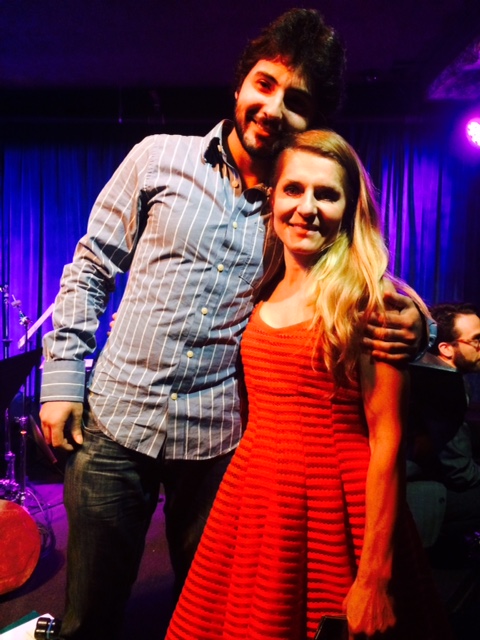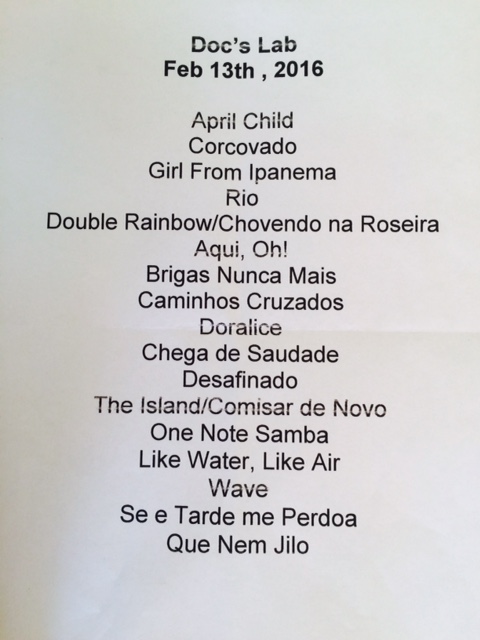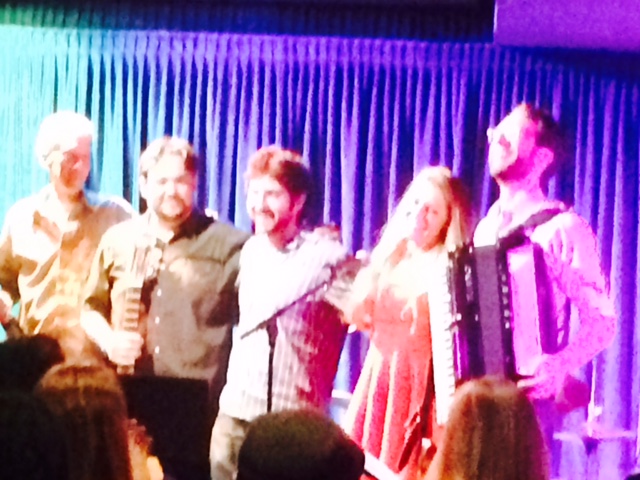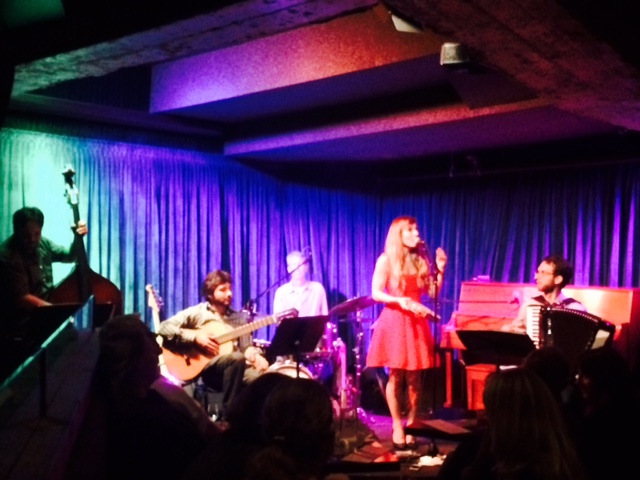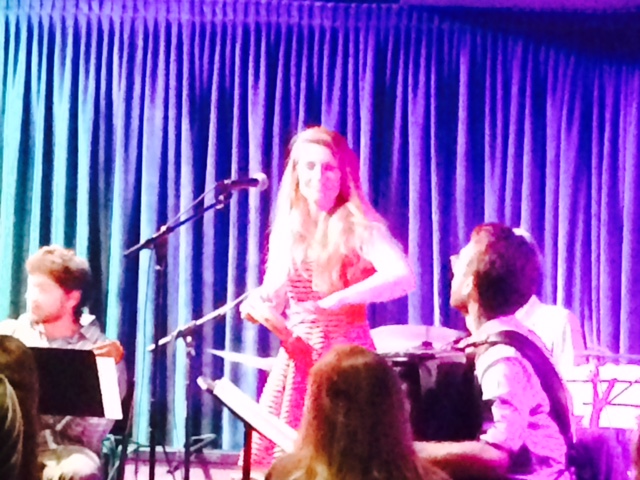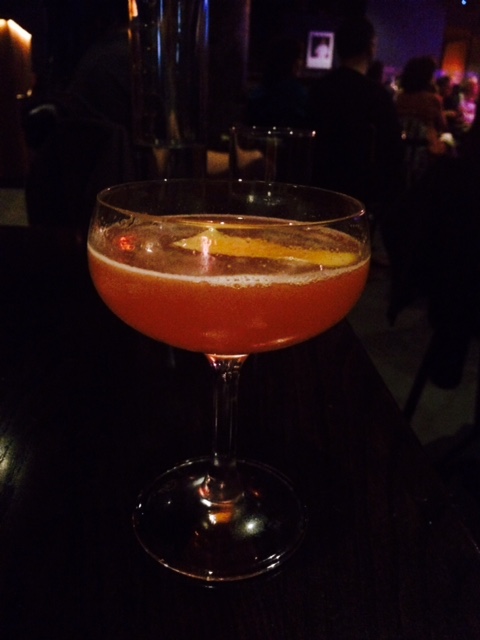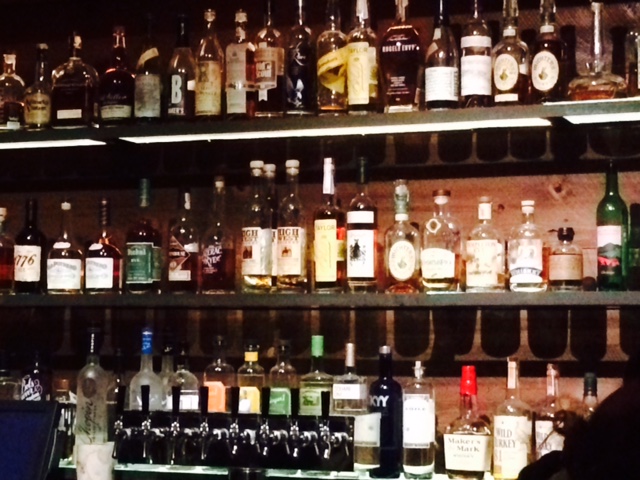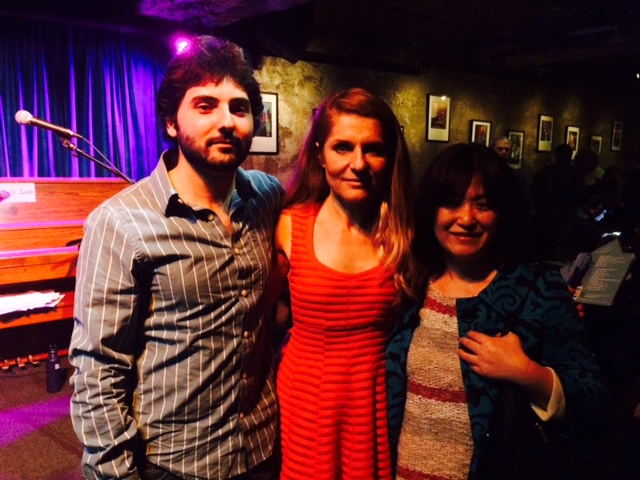My latest performance experience was held at Doc’s Lab in North Beach, a lively Italian district in San Francisco. The featured artist was musician, jazz-educator, songwriter, and producer Masha Campagne, who I met some years ago at her Cafe Royal show in downtown San Francisco. It was my first experience of live bossa nova, and I was fascinated by her performance; bossa nova has been one of my favorite music genres since I was a child, and I’ve always dreamed of going to Brazil to experience the music live. I was with a Brazilian friend the first time I heard Masha. Later on, we learned that she was not Brazilian, but a Moscow-born Russian! Even my friend had been fooled; Masha’s Portuguese is flawless.
Masha studied cello and piano at Gnessin State Music College, an elite music school in Moscow. Her grandfather, an accomplished multi-reed player, introduced her to jazz and bossa nova. She landed in San Francisco in 1991, and is now known as a leading bossa nova and jazz musician in the San Francisco Bay Area.
Doc’s Lab is located below an Italian restaurant on the busy Columbus Avenue. Upon arrival, I settled in with the “Paper Plane” bourbon cocktail to start with - its beautiful orange color and aroma of anise, saffron, and lemon are as cozy and alluring as the space itself.
Masha arrived on stage in a beautiful red dress and her gorgeous smile. Because it was the night before Valentine’s day, the theme, “Love & Bossa with Masha Campagne & Voz da Lapa,” was focused on love songs. The group was composed of Masha Campagne as vocalist, Rob Reich on accordion, Ian Faquini on guitar, Sam Bevan on bass, and Phil Thompson on drums.
Masha kicked off the performance with April Child, a master piece by well-respected Brazilian composer and musician Moacir Santos, who was active in the 1960s and 1970s. As soon as Masha began singing, I was transported to a beach in Rio, feeling a warm breeze washing over me. Masha's voice melded into the instrumentation with ease and grace, creating a tasteful and unique harmonies and textures. The bass was highlighted with an important solo in this piece. I was inspired by the sensibility and intensity with which Sam performed, as if playing was the most natural thing for him.
Next, Masha sang two bossa nova classics, Corcovado and The Girl From Ipanema. The Girl From Ipanema is one of the most famous Brazilian songs. It became a world-wide hit in the mid-1960s and won a Grammy for Record of the Year in 1965. The story behind this song takes place in a small bar located on the beach of Ipanema, where Tom Jobim and Vinicius de Moraes, the artists behind this piece, used to spend their afternoons with a drink, musing about their latest song collaboration. In the winter of 1962, a tall, beautiful girl named Heloisa, an 18-year-old Rio native, caught their attention and inspired them to write the lyrics of this song.
Masha presented these classics with her own interpretation and jazz-influenced voice. Then she moved onto an upbeat song, Rio, that inspired some of the audience to spontaneously begin dancing samba. Ian Faquini and Rob Reich's guitar and accordion solos added even more spice to the atmosphere.
It was my first time hearing the accordion play bossa nova. Rob’s fingers were dancing on the keyboard, the delicacy of the accordion matching perfectly the robustness of Masha’s voice. This performance made me want to learn more about the accordion. I recently learned that the accordion is commonly used in popular Brazilian music. I was also surprised to discover that the piano accordion is the official instrument of San Francisco.
This was followed by another one of Antonio Carlos Jobim’s love songs, Double Rainbow. This song had a modern feeling, with the tambourine adding an interesting texture to the mood. Aqui, Oh! has a refreshing feeling with lots of emphasis on the “beijo” (kiss in Portuguese). Masha played the tambourine while singing, adding more sun to the melody. Next was Brigas Nunca Mais, an uplifting dance song, followed by Caminhos Cruzados, transitioning with a calm and tranquil guitar solo that imitated the sound of a harp.
During the performance, Masha used all kinds of small instruments such as the rattle, the tambourine and the triangle. Her voice and the effects of these instruments complement each other naturally. Masha presented an array of different styles, from slow to upbeat, classic to modern, displaying a rich variety of well arranged tempos and moods while always presenting herself with sophistication and honesty. She sang mostly in Portuguese, but even when singing in English, her heart was always in Brazil.
“Love & Bossa with Masha Campagne & Voz da Lapa” was a perfect experience for the night before Valentine's day, sharing love songs that touched so many people. Masha's artistry and each player's unique character created an unforgettable evening.
To learn more about Masha Campagne, visit her website: Masha Campagne | Vocalist, Songwriter, Producer | Home




